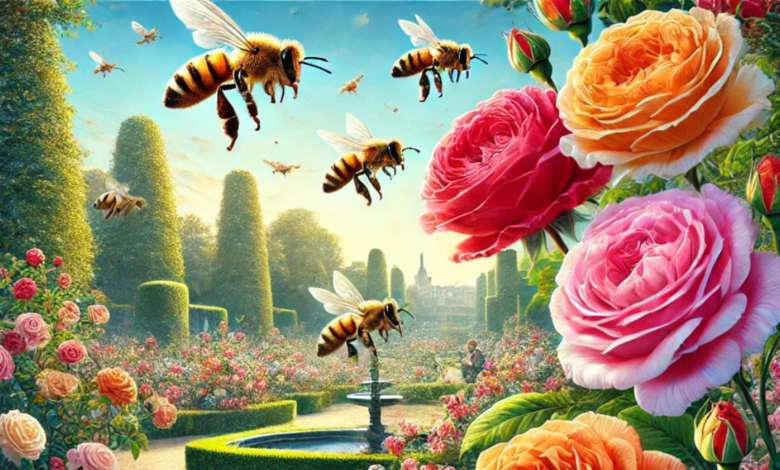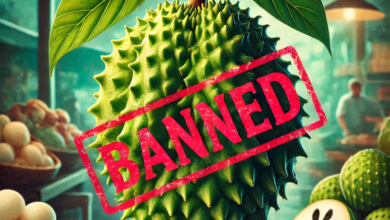King’s Roses NWBKA: A Deep Dive into the Enchanting World of Beekeeping and Floral Majesty

Introduction: The Allure of the King’s Roses NWBKA
In the world of horticulture and beekeeping, few things capture the imagination quite like “The King’s Roses NWBKA.” A term that evokes imagery of majestic gardens filled with vibrant blooms and buzzing bees working in perfect harmony, it has become a fascination for gardeners, beekeepers, and enthusiasts alike. Whether you are an experienced horticulturist or someone just starting to explore the wonders of nature, the concept of The King’s Roses NWBKA offers a delightful blend of floral beauty and the vital role of bees in our ecosystem.
The History Behind The King’s Roses NWBKA
The King’s Roses NWBKA isn’t just about the roses themselves; it’s a concept that represents the intricate relationship between flowers and pollinators. In this article, we will delve into the history, significance, and impact of The King’s Roses NWBKA, exploring how it has shaped gardening practices, ecological sustainability, and the art of beekeeping.
A Royal Connection to Nature
The connection between royalty and roses goes back centuries, with kings and queens often using these exquisite blooms as symbols of power, love, and prosperity. The phrase “The King’s Roses” hints at a historical tradition where monarchs would cultivate and cherish roses within their gardens, signifying not only wealth but also a deep appreciation for natural beauty.
The NWBKA (National Western Beekeeping Association) aspect adds an interesting twist, suggesting a more modern approach to beekeeping intertwined with heritage gardening. It implies an organized effort to integrate sustainable beekeeping with traditional rose cultivation methods, creating a synergy that benefits both plants and pollinators.
The Evolution of Beekeeping Practices
Throughout history, beekeeping has evolved from a simple honey-harvesting activity to a sophisticated practice with ecological implications. The King’s Roses NWBKA embodies this evolution, emphasizing not just honey production but also the crucial role bees play in maintaining floral health and biodiversity.
Ancient records show that kings often employed skilled beekeepers to ensure their gardens thrived. Over time, these practices have evolved, and today, NWBKA represents a collective effort to preserve and enhance beekeeping methods that align with environmental sustainability and garden aesthetics.
The Symbolism of Roses and Bees
Roses have long been symbols of romance, beauty, and resilience, while bees symbolize diligence, community, and balance in nature. Together, they create a perfect metaphor for harmony and productivity, highlighting the importance of maintaining balance in ecosystems through mindful gardening and beekeeping practices.
The Role of NWBKA in Promoting Sustainable Beekeeping
The National Western Beekeeping Association (NWBKA) is an organization dedicated to promoting responsible and sustainable beekeeping practices. Their mission revolves around educating beekeepers, protecting bee populations, and advocating for policies that support ecological balance.
What is NWBKA?
Incorporating NWBKA principles into rose gardening practices under The King’s Roses initiative allows for a deeper understanding of how pollinators contribute to plant health and vice versa. NWBKA provides guidelines and support to ensure that roses and bees can coexist in a mutually beneficial environment.
Best Practices for Sustainable Beekeeping
When it comes to beekeeping in rose gardens, NWBKA emphasizes several best practices, including:
- Natural Habitat Creation: Encouraging the growth of diverse floral species to provide bees with a steady source of nectar and pollen.
- Chemical-Free Gardening: Avoiding pesticides and chemical fertilizers that can harm bees and other beneficial insects.
- Seasonal Maintenance: Ensuring that both roses and bee colonies are cared for throughout the changing seasons to support long-term health.
By following these principles, gardeners can contribute to the preservation of bee populations while enjoying flourishing rose gardens.
How Beekeepers and Gardeners Collaborate
Collaboration between beekeepers and gardeners is key to the success of initiatives like The King’s Roses NWBKA. Gardeners can benefit from increased pollination and improved rose yield, while beekeepers gain access to healthy foraging grounds for their bees.
Growing The King’s Roses: Tips and Techniques
Workshops, community events, and educational resources provided by NWBKA help foster these relationships and encourage the exchange of knowledge and experiences.
Choosing the Right Rose Varieties
Selecting the right rose varieties is crucial for successful cultivation within The King’s Roses concept. Some of the best varieties that thrive alongside bees include:
- Old Garden Roses: Known for their rich fragrance and resilience, these roses provide an excellent source of nectar.
- Shrub Roses: Offering extended blooming periods and abundant pollen, shrub roses are perfect for supporting bee activity.
- Climbing Roses: These visually stunning roses create vertical foraging spaces for bees, adding an aesthetic charm to any garden.
Soil Preparation and Care
Healthy soil is the foundation of a thriving rose garden. Preparing the soil with organic compost and natural fertilizers helps create an environment that supports both plant and insect life. Regular mulching and soil aeration further enhance root health and moisture retention.
Watering Strategies for Optimal Growth
Roses require consistent watering, but overwatering can lead to root rot and fungal issues. Drip irrigation systems are an excellent way to provide steady moisture while preventing water wastage. Monitoring soil moisture levels ensures that roses receive the hydration they need without unnecessary stress.
Pest Control Without Harm to Bees
One of the biggest challenges in rose gardening is pest control. However, using organic pest control methods such as neem oil, companion planting, and introducing natural predators like ladybugs can help keep pest populations in check without harming bees.
Enhancing Biodiversity
A well-maintained rose garden that follows NWBKA guidelines can significantly enhance local biodiversity. By providing a haven for pollinators and other beneficial insects, these gardens contribute to a more balanced and resilient ecosystem.
Boosting Pollination Efficiency
Roses, though not the primary source of nectar for bees, can still benefit greatly from efficient pollination. Enhanced pollination leads to better flower formation, increased fragrance production, and improved seed development.
Combating Climate Change Through Sustainable Gardening
Sustainable rose gardening practices help combat climate change by reducing carbon footprints, supporting soil health, and promoting green spaces in urban environments. The integration of beekeeping further amplifies these benefits by encouraging natural pollination cycles.
Conclusion: The Future of The King’s Roses NWBKA
As the world moves towards more sustainable gardening and agricultural practices, The King’s Roses NWBKA stands as a shining example of how tradition and modernity can coexist harmoniously. Whether you are an amateur gardener or a professional beekeeper, embracing the principles of this concept can lead to healthier gardens, thriving bee populations, and a deeper connection with nature.
Incorporating sustainable practices, nurturing the relationship between roses and bees, and fostering community collaboration will ensure that The King’s Roses NWBKA continues to flourish for generations to come. So, take a step into this enchanting world and witness the beauty and benefits it has to offer.





